The COVID-19 Crisis Explained by Experts
With the COVID-19 pandemic’s impact being felt in every area of American life, it is more important than ever to provide rigorous research to inform reporting on this crisis. To meet this growing need, Scholars Strategy Network has compiled a list of scholars who are available to be contacted for comments and analysis. Below are the scholars who can comment on the crisis.
School Closings
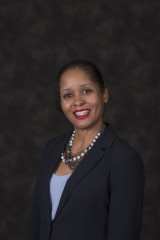
"We are under a lot of pressure because, on one hand, as public leaders, we do our neighborly part to address this deadly and serious pandemic, but we too have a civic obligation to educate in these stark realities. For me, this is not only about the action steps involved in public closure policies, but, as more educators and children are becoming infected, destressing is critical because it's draining on me to stay calm while helping others stay calm too."
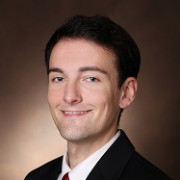
“The number of recent school closings potentially raises equity issues with regard to how different groups of students, particularly those from lower socio-economic backgrounds, will be impacted by this disruption in their formal education.”

"Berea College made the right choice to shut down its campus and did so in a way that didn’t
leave its students in a lurch. Financially supporting the students in every way it could, it signals there is a right way and a wrong way to lead. This wasn’t about positive PR for the college; it was morally right and socially-just leadership."

"K-12 cafeteria workers across the country are busy figuring out new ways to feed kids safely with schools closed due to COVID-19--from drive-up curbside service to home deliveries via school busses--yet they earn such low wages that roughly one-third participate in at least one federal program designed to reduce child and family poverty. They deserve to take home a living wage and have health and retirement benefits in exchange for the vital work they do feeding and caring for the nation's children."

"I have studied the factors leading to individuals experiencing food insecurity and how food insecurity impacts physical and mental health of parents and their children. This area of research has resulted in me studying the impact of poverty and policies designed to reduce poverty (e.g., National School Lunch Program, SNAP). With schools closing and work hours for hourly-wage jobs being reduced as an effort to contain coronavirus, this will impact the ability of families to access and afford food."
Health Care
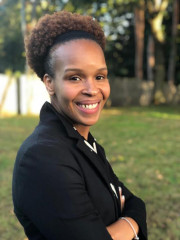
"Due to racialized anti-immigrant rhetoric and policies, immigrants were already afraid to seek health care before COVID-19. Now, fear of being "public charges" under the new Trump administration rule change and ongoing ICE detentions will cause these communities to "shelter in place" even when they need vital care that could save their lives. As many immigrants (and some citizens in mixed-status families) will likely be left out of the proposed economic stimulus packages, they will essentially be left on their own to weather this outbreak, further exacerbating this public health crisis for the country."

"In an epidemic or pandemic situation, medical and human resources may be stretched to the point of exhaustion. Appropriate planning must incorporate plans of action that minimize public health morbidity and mortality while maximizing the appropriate use of medical and human healthcare resources"

Professor Rosenbaum is best known for her work on the expansion of Medicaid, the expansion of community health centers, patients' rights in managed care, civil rights and health care, and national health reform.

"An inexcusable delay in testing, an underfunded and unprepared public health system, and bitter political divisions have combined to create an unprecedented threat to the nation."

"Community conversations about ventilator rationing needs to happen now. A worse case scenario is that ventilators are rationed and communities are up in arms because they disagree with how decisions are being made."

“Virtually everyone in America and most people throughout the world are feeling the impact of the COVID-19 pandemic. The pandemic has exposed the weaknesses of domestic and global public health, providing a window of opportunity for policy reform. Humankind needs a new vision, a new architecture, new coordination among renewed systems to ensure central health capabilities for all. Our recently published OUP book, Global Health Justice and Governance, lays out the critical problems facing the world today and offers a new theory of justice and governance as a way to resolve these seemingly intractable issues.”

"The American hospital system has a wide range of medical specialists, first-rate research capacity, and the best medical technologies in the world. But hospitals and healthcare personnel are unevenly distributed across rural and urban areas, making the rural population particularly vulnerable to such a novel and lethal virus. In addition, quite a few states will be in shortage of hospital beds and physicians if we fail to slow the speed of spread."
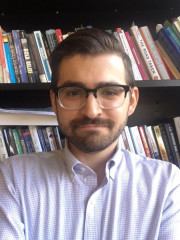
"This emergency will test the limits and capacities of the Medicaid program, which insures 1 in 5 Americans. While federal and state governments are leveraging flexibility within Medicaid to respond to COVID-19, the most important question is whether Congress will expand coverage to cover all beneficiaries' testing and treatment."

"Broader access to health insurance and health care providers play a key role in slowing down and managing this epidemic, particularly in resource poor communities. Local health departments and community health centers serve as primary sources of preventative care and routine screening for highly vulnerable residents."
Economic Impact

"The coronavirus pandemic has laid bare how ill-prepared the U.S. is to address basic human needs. Unlike every other wealthy nation, the US fails to provide access to health care for everyone, paid time off for workers who are sick, safety standards to protect health workers, adequate payment to caregivers for people with disabilities, or financial support for businesses in times of natural disasters or widespread illness." [Source]

"This pandemic has only further heightened the dangerous inequities that our institutions have reinforced for decades. Something as fundamental as paid leave needs to be available to our most vulnerable workers—restaurant employees, healthcare providers, childcare workers—so nobody is forced to choose between earning a paycheck that keeps food on the table and protecting their own and their family’s health."

"The Coronavirus outbreak highlights shortfalls in both workers’ protections and public health in the United States. It is imperative that the workers who are temporarily or indefinitely out of work as a result of the virus have access to comprehensive protections including-- paid family leave, paid sick days, health insurance, food supports, and cash assistance in the short term, along a larger long-term policy and programs that ensure the economic security for all workers during and beyond this crisis."

"Due to the social distancing measures needed to slow/stop the pandemic and save lives, we are now in a purposeful “planned” recession unlike anything we've seen before. A good metaphor is a coma that is induced to save a patient, but with the correct fiscal/monetary policies the economy could recover quickly."

"Recessions stem from money failing to circulate in the economy, so when we inject money in through stimulus, we want to inject it into the parts that will circulate it (i.e. spend it) the fastest - that is, unemployed families and other low-income families who have lost work hours, who will spend it right away. So rather than payroll tax cuts, which send most of the funds to high-income salaried people who will just sit on it till they can go on vacation after the crisis is over, the stimulus will be most effective if it goes through expanded unemployment benefits and increased SNAP benefits to help folks buy groceries today."

Klein's research focuses on international macroeconomics, which covers topics like international trade, exchange rates, unemployment, government budget policies, monetary policies, and international economic relations among countries. He has written for EconoFact on the likely economic effect of COVID-19 as well as on the Fed’s response to the pandemic.

"We are in uncharted territory where the usual tools for economic stabilization, both monetary and fiscal policy, will be overwhelmed by disruptions in supply and the demands created by unprecedented hoarding. We need to think anew, even adopting wartime measures of direct economic management and allocation to ensure safety and to protect the most vulnerable among us."
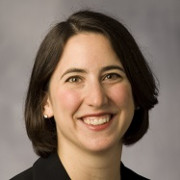
"As communities enact social distancing policies to contain the spread of COVID-19, many workers will end up unemployed or with their hours drastically cut. My research has shown that these community-wide job losses harm families and children in the entire community, including those who keep their jobs."
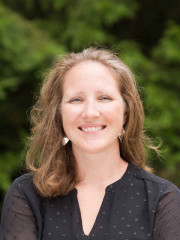
"Many families were already experiencing financial precarity before COVID-19, and Black, Brown, and lower-income white families could be completely financially devastated as racialized inequalities disproportionately force them to the frontlines of the pandemic. Policymakers and regulators must take immediate steps to mitigate this devastation, such as issuing moratoriums on negative credit reporting, debt collections, vehicle repossessions, and bank fines and fees."
Social Responses
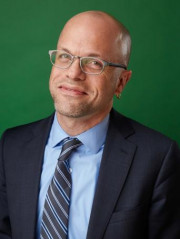
“One thing I’ve learned from past crises: A key function of government leadership is put people with different types of expertise and resources into one coordinated planning effort, so they come up with solutions that make sense for both human health and the economy, not just one or the other.”
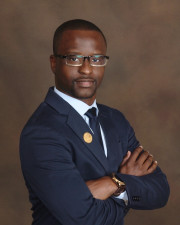
"People assume that the lives of individuals and families become miraculously stable in times of a pandemic - that sheltering in place, particularly for people who are experiencing issues such as rental evictions, foreclosures, and homelessness can actually be done. In the wake of this global emergency, we need more than just surveillance of COVID-19 cases - we need to make sure that people who are experiencing housing transitions are able to keep themselves, their families, and their communities safe by having a place to self-isolate and not worry at the end of the day whether they will be kicked out of those places."

Sered’s work explores how individuals and groups experience illness, death and suffering, as well as the ways in which powerful institutions manage, or do not manage, to exert control over those experiences.

"While necessary to save lives, social distancing and the closing of restaurants, bars, gyms, and more is going to hurt a lot of people without savings. I believe we need to halt evictions so these people aren't hurt more by losing their homes."
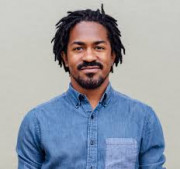
"International calls for social distancing are necessary, but they should also encourage collective-care, rather than just self-care. We can actually strengthen our social ties and reduce our social isolation by relying on each other through talk, text, social media, and snail mail."

"I'm worried about the many people who can't isolate at home, such as people who are homeless, people who can't work remotely, or people who can't afford to stock up for a few weeks on food and essentials -- and all this is happening with a weak safety net. For example, there is recognition that some kids need the food they normally get at school, but what about the need for families to pay rent, to buy medication?"

"Our team is conducting an ongoing study involving unhoused and unstably housed women in the San Francisco Bay Area; the majority of our study participants have chronic health conditions and nearly half have been diagnosed with a respiratory problem, nearly a quarter are age 55 and older. We have been documenting a lack of accurate information about COVID-19 among these highly vulnerable women."
Government Response
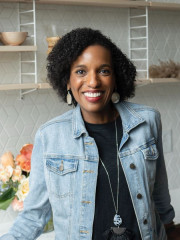
“Local and state governments have been chronically underfunded in recent decades, particularly in the area of public health. Intergovernmental funding and deployment of critical equipment will be necessary to help them respond to severe cases, and collaboration between localities and broad communication of effective policies will be markers of success during this emerging disaster.”
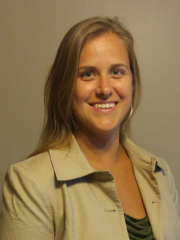
"We have seen unprecedented measures enacted by state and local governments during this crisis. While we can celebrate their swift actions to ensure public health, it is important that we keep a close eye on the ways in which these actions will impact local democracy in the long term—these “short term” changes will have long term political implications."

"One of my areas of expertise is crime and disaster. While COVID-19 does not qualify as a disaster, is it nevertheless an example of what Kai Erikson calls “a new species of trouble” that forces us to think more broadly about human behavior in times like these and to apply the relevant findings from scholarship in similar areas. Crimes that typically follow in the wake of (some) disasters include burglary, interpersonal violence (particularly domestic violence and child abuse), drug use, and especially fraud."

Tsai examines issues of accountability, governance, and political participation.

“We are witnessing a gradual militarization of US response to the COVID-19 pandemic, with spikes like the new National Guard Title 10 deployments. This militarization began immediately: state governors publicly spoke about imposing martial law. Then we heard our Commander-in-Chief’s declaration of ‘War on Coronavirus.’ Our government is now ‘deploying’ troops to fight a domestic ‘war’ on a virus. There are many new political needs and opportunities within this crisis, which we must work together to actualize.”
Incarcerated Populations

"Prisons, like nursing homes, are closed institutions filled with populations at high risk for pandemics. Many have already prohibited visiting, but more needs to be done, including: providing adequate sanitation supplies, limiting new prison admissions, releasing low-risk prisoners, and maintaining legal visiting so external oversight remains in place."

"Many of the individuals behind bars are in poor health and have limited access to health protection measures like clean water and soap, hand sanitizer, and the ability to physically isolate. In addition, we have millions of Americans who pass through courthouses everyday and are expected to report to probation and parole agencies. All of these interactions put justice-involved children and adults, staffers, and the public at risk. All local, state, and federal criminal justice agencies need to be putting plans in place now that safely release the most vulnerable from custody and halt the everyday interactions that drive the spread of disease."
Racial Health Disparities

"If we want to understand current racial/ethnic disparities in COVID-19 we need to consider both historical and contemporary institutional drivers of disparities (e.g., racial violence, segregation, and discrimination). People of color, especially African Americans and Native Americans and many Latinx subgroups, have experienced an elevated risk of mortality and chronic disease since we have been able to collect data about health. This is not new nor are the drivers of these disparities."

"I am a nurse scientist and a Native American who is now also a COVID-19 survivor. From my scholarship and lived experiences, I know that this virus has the potential to do great damage to our nation's Indigenous communities, because COVID-19 only adds fuel to an existing crisis of existing health conditions, poverty, unemployment, poor access to education, and chronic underfunding of the Indian Health Service."
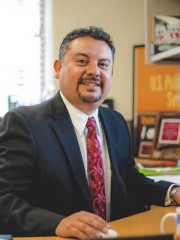
Sanchez conducts research and teaches in the area of American politics with a specific emphasis on Latino politics, health politics and policy.

“Federal immigration policies have placed Latino immigrants at particular risk of infection and death, and recent pandemic policies offer them scant relief. States must innovate to expand Emergency Medicaid to cover coronavirus testing and treatment - and, like New York and Washington, cover it outside of the hospital itself.”
Voting and the Census
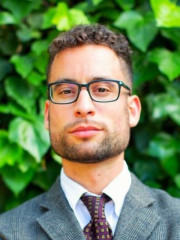
"The COVID-19 crisis makes clear the underinvestment in American public institutions and infrastructure, from health care to the social safety net to election administration. The U.S. must demand that the wealthy and large businesses contribute more to these institutions, because a society that is robust to crisis is better for all of us."
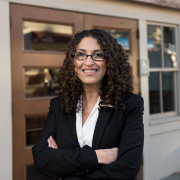
"In light of the worsening COVID-19 pandemic, we must look ahead to the November 2020 elections to ensure that they can be conducted safely and at the highest standards. For that we will need to explore the various methods of voting, and especially alternatives to in-person voting. Implementation of such changes will come with both political and technical challenges that we must overcome."

"With the U.S. Census, the presidential primary campaign, and the upcoming national elections, 2020 already was a critical year for American democracy. A public health crisis only highlights the importance of leadership in a representative democracy and challenges states to balance public health and safety with a citizen's right to vote."
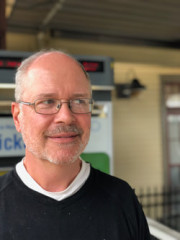
"University administrators should begin planning proactively to guarantee their students' right to vote this fall, including expediting online registration, and pressing legislatures to expand early voting and mail-in voting. The best way for Congress to help students vote and keep them safe is by requiring 50-state vote-by-mail in 2020."
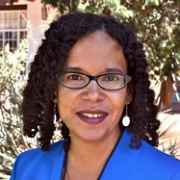
"Now more than ever, we need everyone to help ensure a complete count for the 2020 Census. Think of at least 5-10 people you can mobilize and remind to fill out the 2020 Census at my2020census.gov. You can also call or request a paper copy."

"COVID-19 creates an unprecedented situation for the decennial census. The Census Bureau itself has placed many questionnaire assistance activities on hold. Perhaps more importantly, local and state governments as well as community-based organizations have cancelled or drastically scaled back their in-person outreach to historically undercounted communities. The challenge now is how to leverage a more limited set of communication channels to generate trusted and accurate messages about the Census. The success of state and local responses will largely depend on the extent of their planning efforts prior to 2020."

"Students vote very reliably by absentee ballot, in greater numbers than they would in person. Partly it's because many out of state students don't feel right about voting in their campus community. Partly it's more convenient, same as for all voters. Now, with COVID-19 keeping us indoors, there's more interest than ever in vote by mail. For students, and for everyone."

“Normally, an external threat like war or a pandemic health crisis brings a country together. However, our bitter partisan polarization is dividing us even on how much of a threat we perceive COVID-19 to pose. The message we believe depends on which messenger we trust – the president, scientists, a governor, a particular news channel. It is vital for political leaders to develop a common message and strategy for controlling the virus, addressing the economic impact, and protecting the election process.”